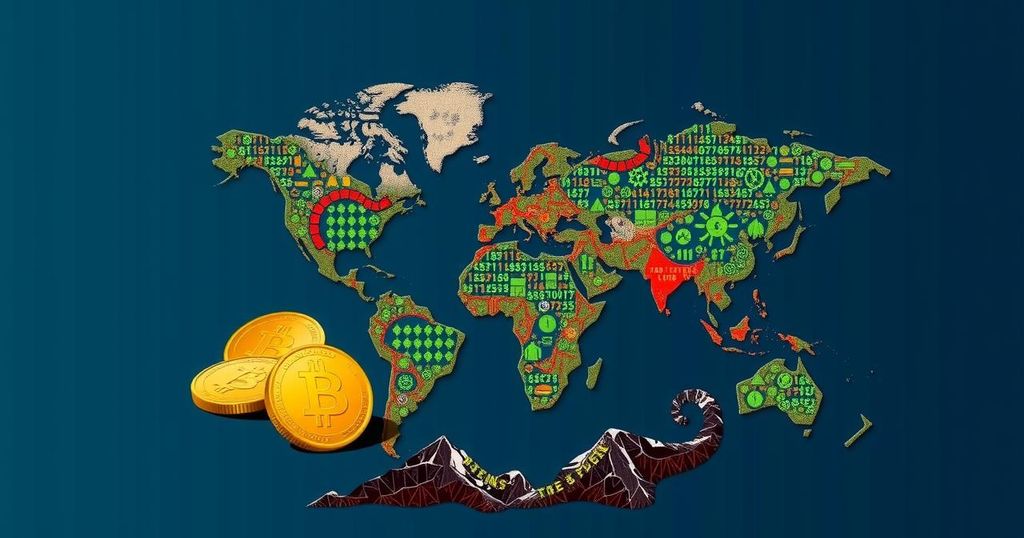Business
Companies
economics
AFRICA, BANKING, BOSTON UNIVERSITY GLOBAL DEVELOPMENT CENTRE, CARIBBEAN, CATASTROPHE CONTAINMENT RELIEF TRUST, CCRT, DIGITAL TECHNOLOGIES, ECONOMY, GLOBAL ECONOMY, IM, IMF, INDIAN OCEAN, INTERNATIONAL MONETARY FUND, KENYA, MADAGASCAR, NAIROBI, OIL PRICES, PARIS AGREEMENT
Fatima Khan
0 Comments
IMF Urged to Utilize Gold Reserves for Debt Relief to Combat Climate Change Challenges
The IMF is urged to sell 4% of its gold to raise $9.52 billion for debt relief targeted at 86 low-income countries affected by climate change. This comes as many nations struggle with rising repayments after climate-related disasters, exacerbated by limited access to the existing CCRT. With current gold prices at $2,600 per ounce, such a sale could significantly replenish funds for targeted assistance without new conditions.
The International Monetary Fund (IMF) has been urged to consider selling 4% of its gold reserves to provide debt relief for low-income countries severely impacted by climate change. A recent study highlighted that this measure could generate approximately $9.52 billion, significantly aiding 86 countries currently struggling with high repayments after being hit by climate-related disasters. Currently, the IMF’s Catastrophe Containment Relief Trust (CCRT) covers only 30 countries with a mere $103 million available, and its eligibility criteria do not account for many climate-vulnerable nations. With gold prices exceeding $2,600 per ounce, the IMF stands to replenish the CCRT effectively by leveraging its gold assets. Such a strategy would alleviate increasing debt servicing burdens on nations like Madagascar and Mozambique. Potential sales of IMF gold, however, would require support from the executive board and a commitment from member states to allocate proceeds toward climate-related debt relief.
The ongoing challenges faced by low-income countries due to climate change have prompted calls for innovative solutions to debt relief. Currently, many nations are turning to the IMF for assistance amid soaring repayment costs arising from various global shocks, including the COVID-19 pandemic. The CCRT exists to assist countries in distress, but its limitations necessitate alternate funding strategies. Historically, the IMF has used its gold reserves to navigate financial crises, although such actions are infrequent and require broad founding support from its member states.
In conclusion, the potential sale of a fraction of the IMF’s gold reserves emerges as a viable strategy to alleviate the financial strain on low-income countries suffering from climate change effects. By leveraging current gold prices, the IMF could significantly bolster its relief efforts, specifically through the CCRT, thereby addressing the critical need for immediate and condition-free assistance. The call for such measures underscores the urgent need to re-evaluate financial support mechanisms for vulnerable economies facing escalating challenges due to climate issues.
Original Source: www.kitco.com




Post Comment